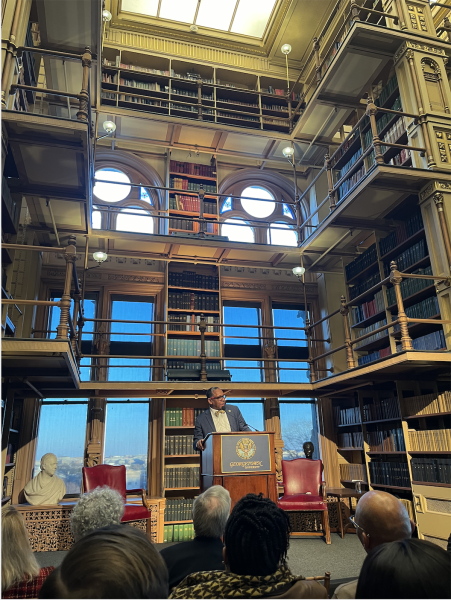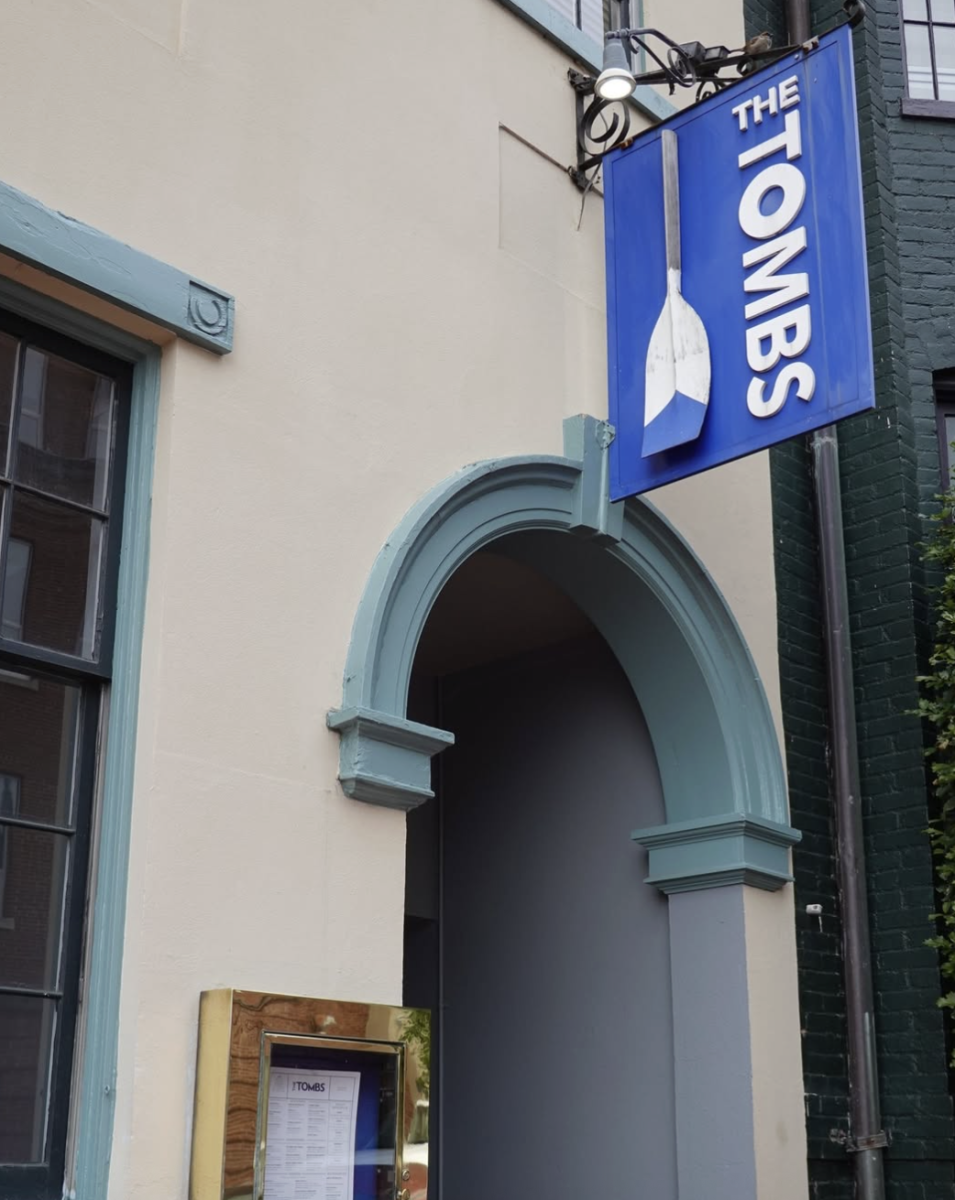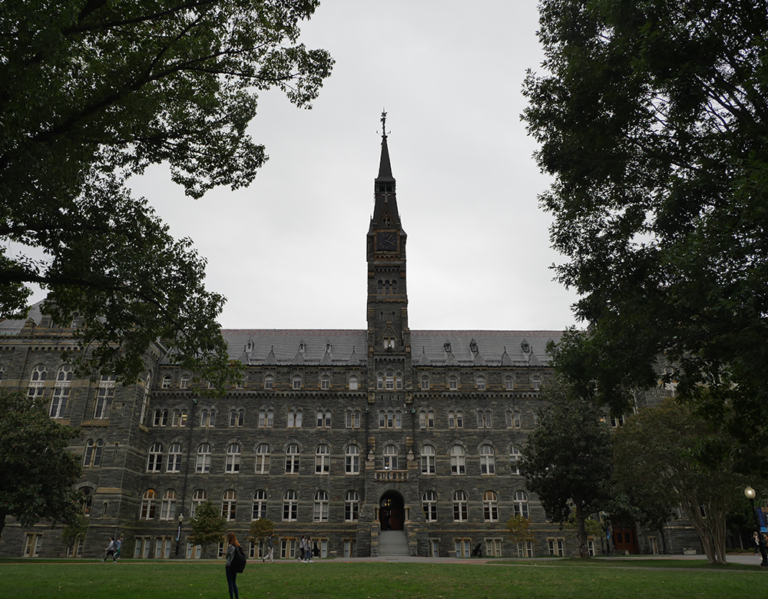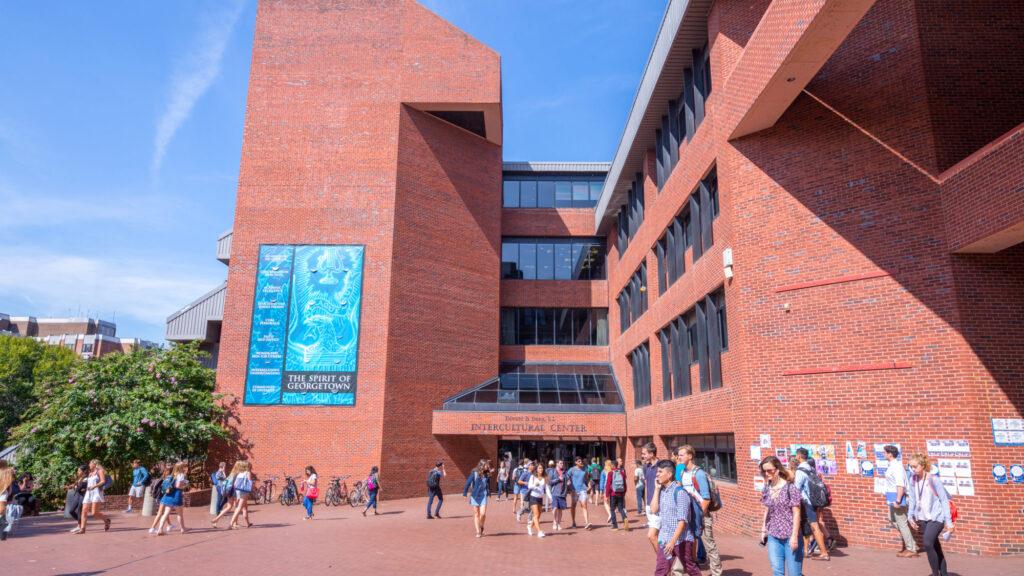The president of Xavier University of Louisiana called on students and Catholic universities to integrate the sciences and humanities in order to promote theological inquiry at a Feb. 4 Georgetown University event.
Reynold Verret, an immunologist and biochemist, presented the 2025 Bernardin Lecture, an annual program inviting leaders to speak on human dignity in honor of the late Cardinal Joseph Bernardin, a former Archbishop of Chicago who promoted international peace and worked to mend divides within the Church. Verret, who sits on the Georgetown University Board of Directors, spoke from his experience as the president of Xavier, the only Catholic historically Black university in the United States.

Verret said modern education systems contribute to the heightened division between humanities and science students by failing to prioritize interdisciplinarity.
“Part of the problem that keeps occurring is that we educate in the humanities in such a way that very often many humanists are not steeped in the sciences,” Verret said at the event.
“And the other way, most science and engineering majors take a little more humanities because that’s how gen-ed is made,” he said. “Some say that’s not enough.”
Verret said that while the sciences and humanities were once closely connected, the fracturing of subjects into various and isolated fields of study has prevented collective exploration of the liberal arts.
“In there — that birth of new discipline, the new jargons, that distinct terminology — what we are doing is also making conversation with the others more difficult,” Verret said.
Verret previously served as chair of the department of chemistry at Clark Atlanta University, where he researched immune cells and biological membranes, and as the provost of Savannah State University. In his academic leadership, he has focused on promoting interdisciplinarity in programs of study.
Verret said advancements in both the sciences and the humanities consistently provoke new theological questions within Catholic thought.
“In the major issues confronting the church, the sciences pose important questions — they may not have the answers,” Verret said. “They pose important questions that we don’t get to dance around and avoid.”
Verret said this dynamic makes it necessary for theologians and philosophers to be well versed in many areas of study.
“In order to do moral philosophy, he said you have to take seriously the results of the emerging sciences — psychology, neuroscience,” Verret said.
“Theology by itself doesn’t get there,” he added. “Because as we engage in what we need to be fully human is to understand that we are empirical creatures.”
Verret said Catholic higher education is responsible to uphold the “thinking church,” a vision of a Catholic Church which pursues theological inquiry in response to developments in science.
“That thinking church means that we struggle with things that trouble us many times,” Verret said. “And revelation comes to us through the Holy Spirit, not immediately, not without some battles, but eventually we come to grasp it.”
Verret said marrying the two sides of the liberal arts is what will allow the Church to continue pursuing complex questions of morality and theology.
“We need to frame the problems in ways that we can both absorb and honestly assume good faith, and embrace them and engage in those conversations,” Verret said. “Because if we don’t, we will leave the important questions behind.”
Evelyn Slatoff (CAS ’27), a theology major who attended the event, said Verret’s speech inspired her to consider taking additional classes outside her major.
“We do have space with Georgetown’s curriculum for free electives, and it definitely makes me consider reaching out to the sciences into something I’m totally uncomfortable with,” Slatoff told The Hoya.
Lizzy Martin (CAS ’27), another attendee, said that she has already seen the humanities and sciences interwoven in the Georgetown curriculum through a class she took on the science of climate change.
“It was really cool to have the opportunity to actually learn the science of a social justice class that I am passionate about while also blending it with a humanitarian approach,” Martin told The Hoya.
Verret said students must be willing to take such steps to continue to grow in their learning.
“You have to actually be willing to take great risks. The idea of taking an elective out of your strengths, which may not lead to an A, is something that is very important to be able to do,” Verret said.
“If you don’t take that risk, you lose a lot,” he said.


















